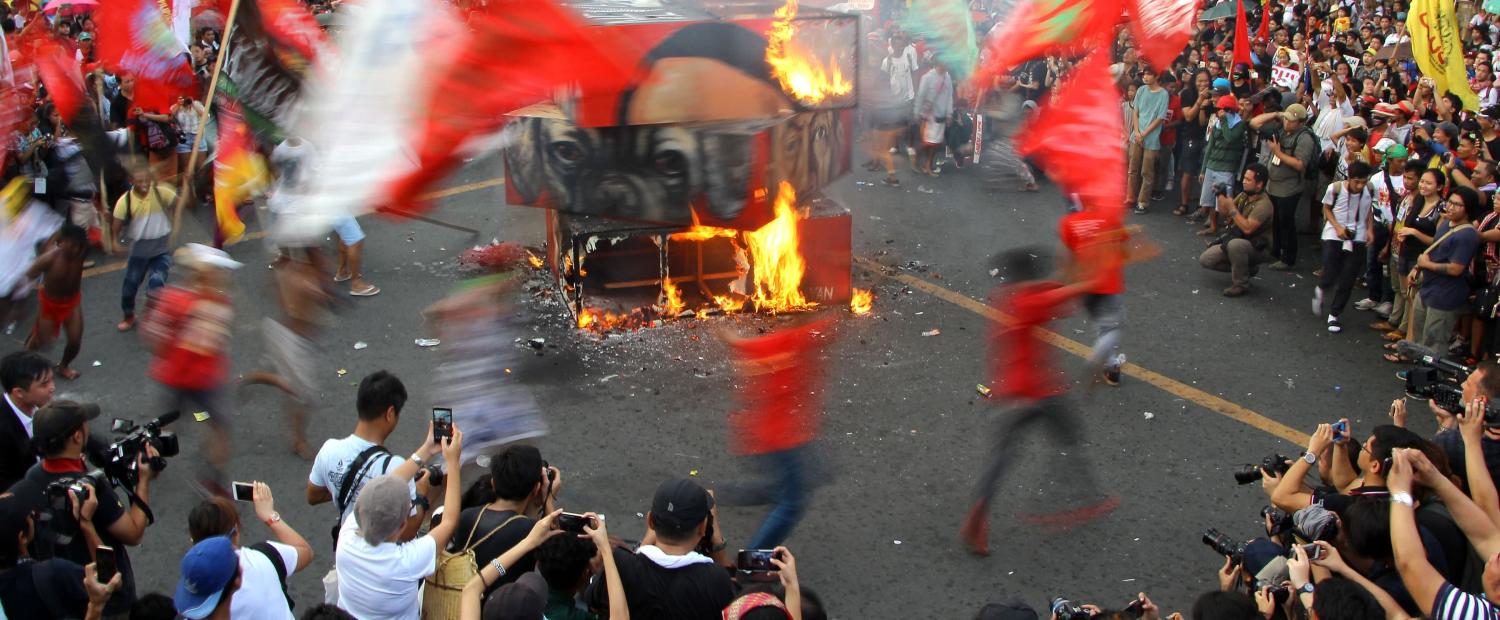There is little doubt that Philippine President Rodrigo Duterte is a populist. As I write in The Rise of Duterte: A Populist Revolt Against Elite Democracy, the Filipino leader has often presented himself as the voice of the people, the guardian of the nation, the shield against criminal elements, and, in an often messianic vein, as the country's final hope and saviour.
As US political scientist Jan-Werner Muller notes, populism is inherently anathema to liberal democracy and principles of pluralism. After all, populists, as in the case of Duterte, have an exclusivist notion of national interest and Rousseau-esque 'general will', whereby only the leader and his supporters truly represent 'the people.'
In contrast, critics and opponents are often portrayed as 'the enemy', bent on preserving the status quo at the expense of the masses. This explains why, for instance, Duterte often accuses his critics of engaging in 'sabotage' and hatching up a supposed 'destabilisation plot'. He has rarely shied away from threatening his opponents with impeachment, imprisonment or worse.
Duterte also epitomises the populist style of leadership. As Benjamin Moffitt explains in his latest book, populism is essentially about 'bad manners': the calculated defiance of the established rituals of power in order to project authenticity. Duterte's invective-laced pronouncements, which often drive his affinity with his audience, are a quintessential expression of his populist appeal.
One can be populist but not necessarily popular, as in the case of US President Donald Trump. Duterte, however, has maintained high approval ratings since coming to power last June. He is often portrayed as one of the world's most popular leaders, along with the likes of Vladimir Putin of Russia.
Thus, the recent drop in his net satisfaction ratings by as much as 18 points has dominated headlines, even though Duterte still enjoys the support of more than two-thirds of Filipinos. Duterte began with the lowest pre-inauguration trust ratings, only to find his net trust rating catapulting to 91% – the highest in the country's history – as soon as he assumed office.
This had less to do with the President's performance than the country's 'winner takes all' political culture. Filipinos tend to rally around their new political leaders even after the most divisive and polarising election campaigns. President Fidel Ramos, who only garnered a small plurality of votes in a very tight election in 1992, immediately started with close to a net 70% satisfaction rating.
Historically, almost all surveyed Filipino presidents maintained sky-high approval ratings in their first years in office. As political observers often quip, tropical nations such as the Philippines tend to have an extended 'honeymoon' period, including in the political realm. This is precisely the context within which Duterte's popularity should be understood.
The only notable exception is President Macapagal Arroyo, who narrowly won what many saw as fraudulent elections against the charismatic actor-turned-politician Fernando Poe Jr. Her numbers never recovered – Arroyo went down in history as the Philippines' most unpopular president, at one point attaining a negative 53% trust rating.
In contrast, her successor Benigno Aquino III stepped down from office with an approval rating of 57%, despite suffering major political setbacks and his eventual failure to get his anointed successor Manuel Roxas III into office. In short, there is nothing extraordinary about Duterte's approval ratings by Philippine standards.
As the first Filipino president from Mindanao with roots in the Visayan region, Duterte, who promised greater political autonomy outside 'imperial Manila', has enjoyed an extraordinary support base beyond the industrialised northern island of Luzon. In places such as Mindanao, for instance, Duterte's net satisfaction rating was close to 90% just a few months ago.
By and large, Filipinos tend to be patient and willing to give their leaders more time to address the country's challenges. Failures that prove fatal in other nations tend to be forgiven by Filipino voters. A case in point is former President Joseph Estrada, who was ousted in a 'People Power' revolution in 2001 after massive corruption scandals. Despite ending up a convicted plunderer shortly after, he still managed to climb his way back to office as Mayor of Manila city. Astonishingly, he placed second in the 2010 presidential elections.
The Philippines' unique political culture may explain why Duterte manages to maintain high approval ratings despite mishaps and his controversial drug policy. While a majority of Filipinos have expressed support in principle, a greater majority has also expressed reservations with Duterte's drug war. For instance, nine out of ten Filipinos want drug suspects kept alive, while seven out of ten Filipinos fear being victims of extrajudicial killings.
Barely into his second year in office, however, Duterte is experiencing a 'faster than average' drop in his approval ratings. He suffered the greatest drops in the Visayan region (by 30 points), among the bottom-third poorest (by 32 points), those with college education (by 28 points), and those above the age of 35 (27 points).
The gruesome death of minors such as Kian delos Santos (allegedly killed by police forces and filmed by CCTV) may have contributed to the decline. This may have especially been the case among poor Filipinos, who have borne the brunt of Duterte's drug war. But the huge drop in the Visayas region, where there is deep concern about terror contagion from neighbouring Mindanao as well as greater support for nationwide Martial Law declaration if necessary, needs an alternative explanation. There is perhaps concern over the inability of the government to swiftly end the months-long siege on Marawi by ISIS-affiliated groups.
Overall, however, the steep decline in Duterte's satisfaction ratings reflects growing public clamour for the President to address more bread-and-butter issues, which have consistently been identified as the most urgent priorities by the electorate, beyond his obsession with the drug war. Filipinos may be patient, but they are also willing to express dissatisfaction when and if they feel it is necessary.

